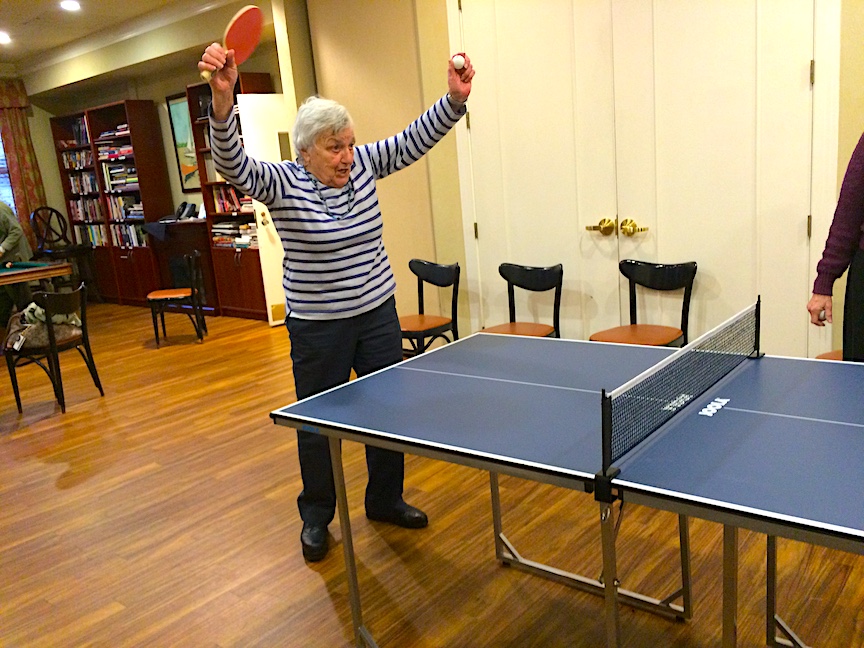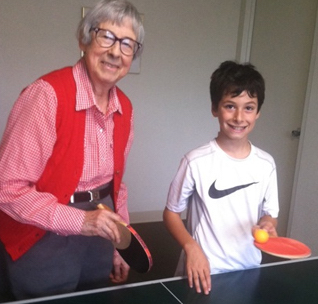Did you know playing ping-pong can mitigate and possibly prevent dementia symptoms? Yes, TABLE TENNIS is the world’s best brain sport.

Every assisted living community and memory-care community should provide residents with table tennis equipment. The one shown here is my midsize table, visiting an independent living community in Oakland. The compact size is perfect for smaller spaces, and gives you the same benefits as a full-size court. The highest quality mini-table is super cost-effective.
The fact that table tennis helps protect and enhance the brain has been documented by multiple scientific studies — and widely observed by health-care participants involved in table-tennis programs designed for people who have neurological or brain impairment.
The other good news
- No heavy playing equipment needed.
- Low risk of collisions, injuries, or falls.
- Improves your concentration and reflexes.
- Easy way to get a solid cardio workout — 30 minutes of high-speed table tennis can burn 270 calories in a 150-pound person and improves overall fitness
So what?
Researchers at my alma mater Boston University recently discovered that cardiorespiratory fitness can change the brains of older adults. A physical activity that enhances cardiorespiratory fitness, such as table tennis, could lessen age-related brain decline. Scientists say that cardio fitness is “linked to the structural integrity of white matter fiber bundles in the brain in the older adults,” with no similar association for younger adults.
As a teenager in the ‘70s— you know, back when joints had nothing to do with bone structure — playing ping-pong with my dad was one of our favorite ways to hang out together. Whether you play it in a community center or at home, table tennis offers a great way to bond with people while you lose weight. My sense is that playing a game that requires directly facing someone enables stronger bonding potential.

Since young and old people can play it together, ping-pong can help improve communication and build relationships. Playing at home with siblings or parents can bring folks closer and enable more quality family time.
Table tennis improves reflex, eye-hand coordination, mental alertness, and speed of movement. It also improves balance and lowers the chances of falls and injuries, especially among older people.
Bottom line: Table tennis can slow the process of cognitive decline.
So look for the table tennis center in your town. Some cities have weekly table tennis clubs set up by their Parks & Recreation Department.
Hayes, S. M., Salat, D. H., Forman, D. E., Sperling, R. A., & Verfaellie, M. (2015). Cardiorespiratory fitness is associated with white matter integrity in aging. Annals of clinical and translational neurology, 2(6), 688-698. https://doi.org/10.1002/acn3.204